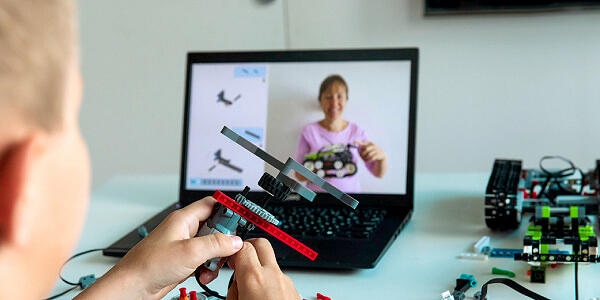STEM in the Real World
STEM education (Science, Technology, Engineering, and Math) has become an essential component of many curriculums, including K12’s. We offer STEM courses for middle school and high school students, as well as STEM activities that complement coursework.
Our STEM clubs also help show students how STEM can prepare them not only to gain new skills in the classroom but also to excel in their future careers and navigate their daily lives.
How to Use STEM in Your Everyday Life
What students learn in STEM courses and through STEM activities extends far beyond their academic pursuits. There are a number of ways to make connections between what they learn in school and how they can use that knowledge in their everyday lives.
Most hobbies and daily activities have an element of science, technology, engineering, and/or math. It’s just a matter of looking for them.

Cooking and Baking
Measuring quantities and combining ingredients to create a new product requires certain math skills. Observing how individual ingredients change their form when baked is a fun (and delicious) application of science.

Shopping and Budgeting
You can include your students in meal planning and shopping, giving them practice at calculating costs and sticking to a budget. This also helps build their awareness of how math skills can be used for common, everyday tasks.

Problem-Solving and Critical Thinking
STEM education hinges on the skills of problem-solving and critical thinking, and every day we’re faced with big and small issues we need to solve.
How STEM Solves Problems in the Real World
Beyond the occurrences of everyday life, academics and professionals use STEM research and knowledge to solve problems on a much grander scale.
- Advanced communication technology enables people to connect across long distances, conduct business with organizations for products or services they need, and stay informed of important events worldwide.
- Research in both science and technology seeks to improve drinking water in many areas around the world that currently go without safe access to it. Technology to desalinate saltwater can increase available drinking water for many communities.
- Scientific research has pushed modern medicine to new heights and significantly improved life-saving procedures and medications.
- Research to find alternatives to carbon-based fossil fuels as energy sources relies on all fields of STEM. When new energy sources are discovered, it will require science, technology, engineering, and math to test, gather, and distribute them.
STEM Professions: STEM Beyond the Classroom
The possibilities for pursuing a career in a STEM-related field are nearly endless, and they’re growing every day. K12’s career and college prep offers courses and hands-on experiences for a sampling of fields related to STEM education.
Agriculture, Food & Natural Resources
Calculating the cost of feed and seeds, researching weather patterns and sustainable water practices, determining which crops will do best in specific climates, and solving pest or weather concerns are all areas in which professionals in this field would apply STEM concepts. Farmers also need to keep track of their methods to maintain a budget and determine if they need to make any changes from year to year.
Sample Agriculture, Food & Natural Resources Careers:
- Food scientists
- Plant scientists
- Sustainable biomaterials specialists
- Veterinarians
- Water resource scientists and engineers
Engineering & Manufacturing
Engineering and manufacturing require skills related to science, engineering, and robotics. As this industry grows with the advancement of technology, there will be an increased demand for jobs within this field. Modern manufacturing relies heavily on various automation methods, which requires an advanced skill set in math and science.
Sample Engineering & Manufacturing Careers:
- Building inspectors
- Civil engineering technicians
- Industrial engineering technicians
- Industrial production managers
- Maintenance or repair workers
- Power plant operators
Health Sciences
The medical field, both in practice and research, depends on STEM concepts. Whether working with medical equipment, in a laboratory, or with patients directly, knowledge of math, science, and technology is required across the medical sector.
Sample Health Sciences Careers:
- Clinical laboratory technicians
- Emergency medical technicians
- Insurance claims clerks
- Medical equipment preparers and repairers
- Medical secretaries
- Nurses
- Medical records specialists
- Occupational health and safety specialists
- Orderlies
Information Technology
With the prevalence of computers and other devices, Information Technology (IT) is continuously growing. The industry overlaps with many others: healthcare uses IT systems to track patient files; banks utilize IT to manage client accounts; small and large businesses require IT to make sales and process transactions. As the name suggests, IT requires an extensive knowledge of technology as well as other components of STEM.
Sample IT Careers:
- Computer programmers
- Customer service representatives
- Graphic designers
- Software developers
- Software quality assurance analysts
- Video game designers
- Web developers
Empower Your Student Beyond the Classroom
With a STEM education powered by K12, your student can learn the skills they need to succeed in their academic journey and continue with those skills after graduation. We incorporate STEM into our curriculum, so your student has a strong foundation for however they want to shape their future.
Explore our programs to see what might be the best fit for your student.

Learn More About STEM Education
STEM and STEAM focused education approaches are a great way to get students excited about learning. We’ve put together lots of information and resources here so you can learn about and navigate through the many possibilities.




